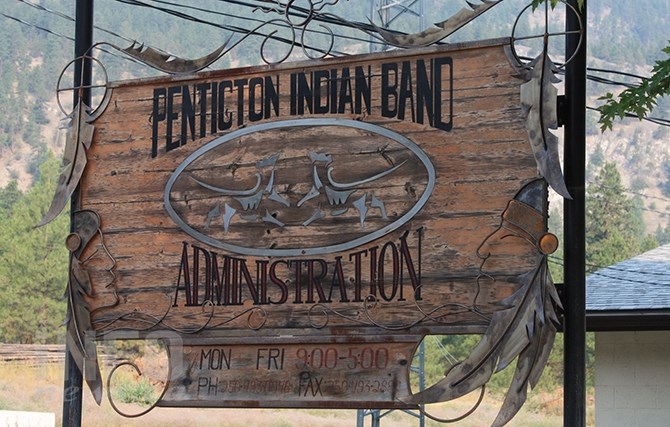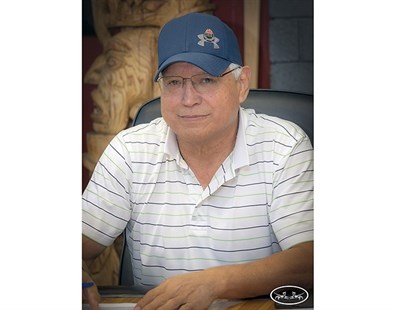
Five new councillors were elected to the Penticton Indian Band council following an election held yesterday, Jan.30, 2020.
(STEVE ARSTAD / iNFOnews.ca)
September 26, 2021 - 3:30 PM
Truth and Reconciliation Day is taking on a heavier meaning in 2021 after hundreds of children’s graves were discovered earlier this year at former Canadian Indian residential schools.
But not everyone thinks we are ready for any kind of celebrations.
“No doubt everyone enjoys a day off work,” Penticton Indian Band Chief Greg Gabriel said. “But in my mind, celebrating Truth and Reconciliation Day is a little premature.”
In 2015, the Truth and Reconciliation Commission of Canada proposed 94 calls to action, though only a few have since been implemented.
“Once we’re satisfied that the calls to action have mostly been addressed, that’s when I think we can truly celebrate truth and reconciliation,” Chief Gabriel said.
He said Indigenous Canadians are still suffering today as a result of the residential school system, 24 years after it was finally brought to an end.
READ MORE: APTN, CBC to air National Day for Truth and Reconciliation programming
“I myself experienced some of that first hand during Indian day school system,” he said. “Something that was forced on us by the Catholic Church and Government of Canada.”
That chapter of Canadian history may have ended but the pain lingers on.
“I watched a lot of my friends die through alcoholism, violence, I watched families suffer as a result of that – that’s what I witnessed.”
He said that pain was reignited in May of this year, when 215 graves were discovered in Kamloops.
“Then we started to discover the real truth.”
Since then, more than 1,800 graves have since been discovered at former residential school sites, mostly belonging to children.
Between the Indian Act, which which was passed in 1876, and the 1969 White Paper proposed by former Prime Minister Pierre Trudeau, as well as the residential schools which operated from 1894 to 1997 – Chief Gabriel feels like the majority of Canadian history was spent trying to get Indigenous citizens to assimilate into mainstream society.
“There are still many outstanding issues related to colonialism and how our people suffered as a result of that, and it still continues today.”
A $1.9 billion compensation package was agreed upon in 2006 for survivors of the residential schools.
READ MORE: Tk'emlups leads Drum for the Children event on National Day for Truth and Reconciliation
“Maybe some people may have enjoyed that but I think it fell really short in actually addressing the actual impacts of the residential school system.”
In 2008, former Prime Minister Stephen Harper formally apologized for Canada’s role in the residential school system.
But since that apology was made, “no real significant changes have been made about what happened," he said.
Chief Gabriel likes that Truth and Reconciliation Day brings First Nations issues to light. He hopes those who have Sept. 30 off work will actually spend the day genuinely learning about truth and reconciliation.
“There’s definitely a reason behind the Truth and Reconciliation Day.”
But for Chief Gabriel, it will be business as usual – just another day.

Penticton Indian Band Chief Greg Gabriel was elected by the band on Monday night, Oct. 19, 2020.
Image Credit: SUBMITTED / Penticton Indian Band
To contact a reporter for this story, email Dan Walton or call 250-488-3065 or email the editor. You can also submit photos, videos or news tips to the newsroom and be entered to win a monthly prize draw.
We welcome your comments and opinions on our stories but play nice. We won't censor or delete comments unless they contain off-topic statements or links, unnecessary vulgarity, false facts, spam or obviously fake profiles. If you have any concerns about what you see in comments, email the editor in the link above.
News from © iNFOnews, 2021